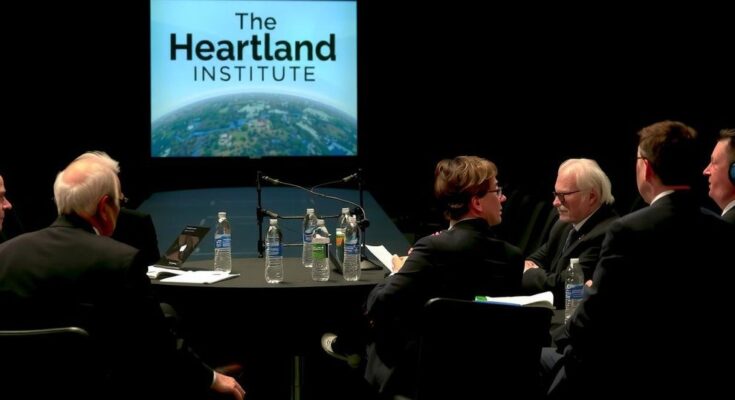The article critiques the departure from the founding fathers’ doctrine against entangling alliances, focusing on contemporary climate agreements that impose foreign obligations on the United States without legitimate congressional approval. Highlighting the implications of international treaties on U.S. sovereignty, it questions the legality of binding commitments established by executive agreement rather than the constitutional treaty process.
The principles advocated by the United States’ founding fathers regarding foreign engagements, notably articulated in George Washington’s farewell address, caution against the pitfalls of entangling alliances. Washington emphasized that the nation should maintain minimal political connections while fostering commercial relationships, a sentiment echoed by Thomas Jefferson in his inaugural address where he proclaimed the importance of “peace, commerce, and honest friendship with all nations, entangling alliances with none.” In stark contrast to this foundational wisdom, the United States has entered into a myriad of international agreements and treaties, many of which impose legal obligations on American citizens—obligations that Congress would likely refuse to endorse. The framers of the Constitution recognized the dangers of foreign alliances and thus required a two-thirds majority in the Senate for treaty ratification. Unfortunately, the vague definition of what constitutes a treaty has permitted an erosion of this requirement, allowing successive presidents to negotiate international agreements with little oversight. The United Nations Framework Convention on Climate Change (UNFCCC), ratified in 1992, appeared innocent, facilitating voluntary commitments among nations to address greenhouse gas emissions. However, subsequent annual climate conferences have escalated demands, introducing undemocratic requirements that have not been approved by the Senate or reflect the will of the American populace. These include binding targets for emission reductions and substantial financial obligations to other nations, which have evolved outside the constitutional framework established by the founders. Presidents since Clinton have navigated these agreements with varying levels of commitment. Signed executive agreements such as the Paris Agreement essentially bypass Senate approval, highlighting the shift from the original voluntary commitments to legally binding international requirements. Additionally, these international accords necessitate drastic changes to the domestic economy and social fabric, imposing modifications driven by foreign entities rather than through the will of the American electorate. Such developments raise significant legal questions regarding the legitimacy of these international agreements. They exemplify the essence of entangling alliances, undermining the sovereignty and direct democratic process historically valued in American governance.
This discussion revolves around the evolution of U.S. foreign policy concerning treaties and international agreements, particularly in light of climate change initiatives. It draws on historical principles laid out by America’s founders, who warned against excessive foreign entanglement. The article critically examines how these principles have been compromised by the increasing dependence on international accords that impose legal frameworks on U.S. citizens without congressional approval, thus jeopardizing constitutional governance.
In summary, the article underscores the historical reluctance of the United States to engage in entangling alliances, as initially advocated by its founders. The current trend toward compliance with numerous international agreements, particularly in climate policy, raises constitutional concerns about the legitimacy of such commitments and their alignment with the democratic principles of the nation. The potential shift from voluntary commitments to binding regulations overseen by international bodies necessitates careful scrutiny to preserve U.S. sovereignty and democratic governance.
Original Source: heartland.org




